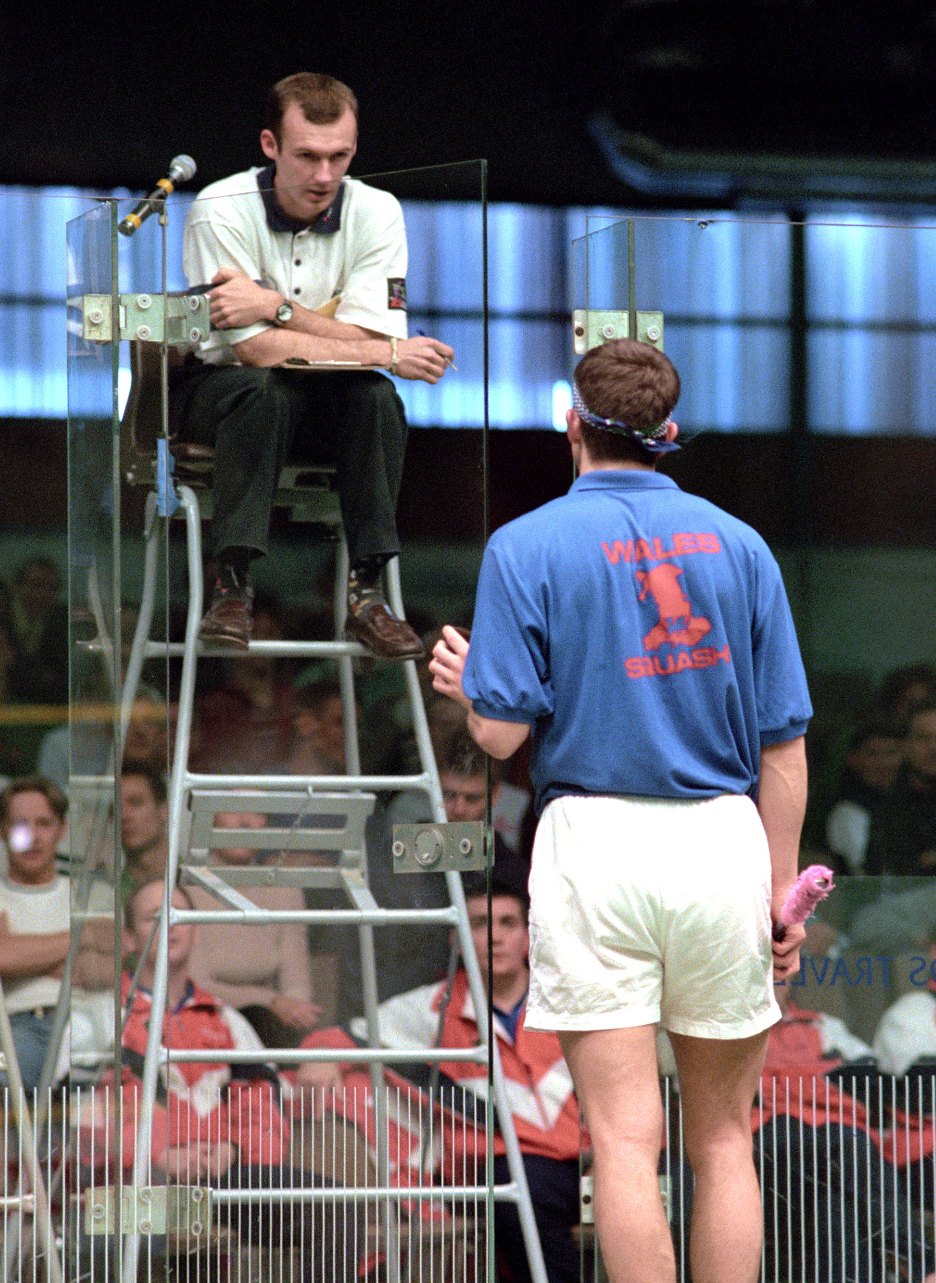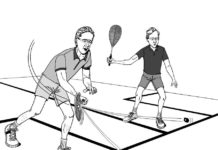By Rod Symington, WSF Referees and Rules Committee
Stress does strange things to us: It causes serious physiological reactions in the brain and the rest of the body—and it often makes us incapable of uttering a coherent sentence. (Lovers will understand what I’m getting at.)
Squash referees are quite familiar with stress; it’s a constant companion, especially when matches become contentious. All too often, the squash referee discovers that his or her brain mysteriously ceases to function clearly, and the tongue won’t behave itself. When an attempt is made to explain a decision, the wrong words come out (or none at all), and the usually suave, intelligent, informed referee has morphed into a babbling idiot. Players anticipate this situation with glee: It gives them a chance to engage in a discussion and to show the spectators what a fool the referee is.
Do not fret; there is a way out of this dilemma. Just as we all need to gain as much experience as possible in making the correct decisions (and in expressing them in the approved manner), so we also need to practice making explanations. Below you will find a series of simple, clear and unambiguous phrases that you can utter at appropriate moments. Instead of struggling to invent an explanation—with the attendant danger of saying the wrong thing and opening the door to an unwanted “discussion,” a referee who has these phrases on hand can settle the question quickly and decisively, and thus promote the flow of the game.
Some suggested explanatory comments

1. When a player appeals a call of “down” or “out” or “not up.”
“The ball was down/out/not up/good.“ (Never, never say: “I thought…”)
2. When a rally ends and a player appeals one or more of the opponent’s shots during the rally:
“All balls were good.”
3. When a player protests a decision of “No let:”
“You could not have reached the ball.”
“The ball was past you.”
“You did not make every effort.”
“The ball hit the nick.”
4. When the referee is unsure (say these phrases with confidence!):
“I cannot be sure. Play a let, please.”
“I was unsighted. Play a let, please.”
5. When a player wishes to prolong the “discussion:”
“Play on, please.”
6. When a player is in the way and a stroke is awarded to the opponent:
“Your opponent could have hit you with the ball.”
“You were in the way.”
“You must clear out of your opponent’s way.”
“You must give your opponent freedom to swing.”
“You were crowding your opponent.”
7. When a player persists in failing to clear after hitting the ball:
“Mr. Hacker, you are not clearing.”
“Mr. Clobber, you are crowding your opponent.”
8. When allowing a let, rather than an expected stroke:
“That ball was too tight.”
“Your opponent was clear.”
“You could not have hit a winning shot.”
9. Never, never ask a player if he or she would “like a let”! If you are unsure whether or not a player is asking for a let, simply wait. Don’t say a word until the player actually asks for a let. If a player uses sign language or mumbles something barely audible, you may assist by saying: “Are you asking for a let?”
A final comment: Always be firm, yet polite; decisive, yet friendly; self-confident, yet approachable. In other words, just be perfect!





